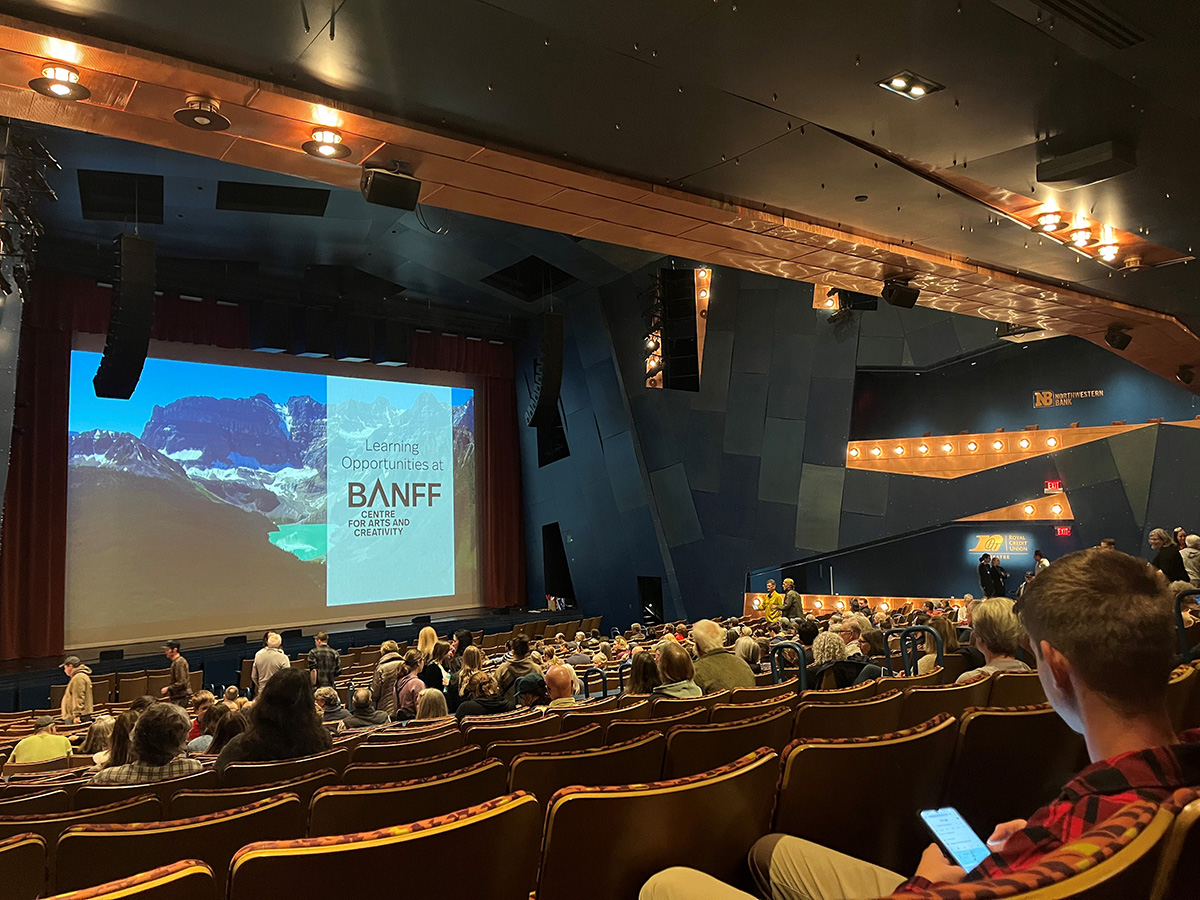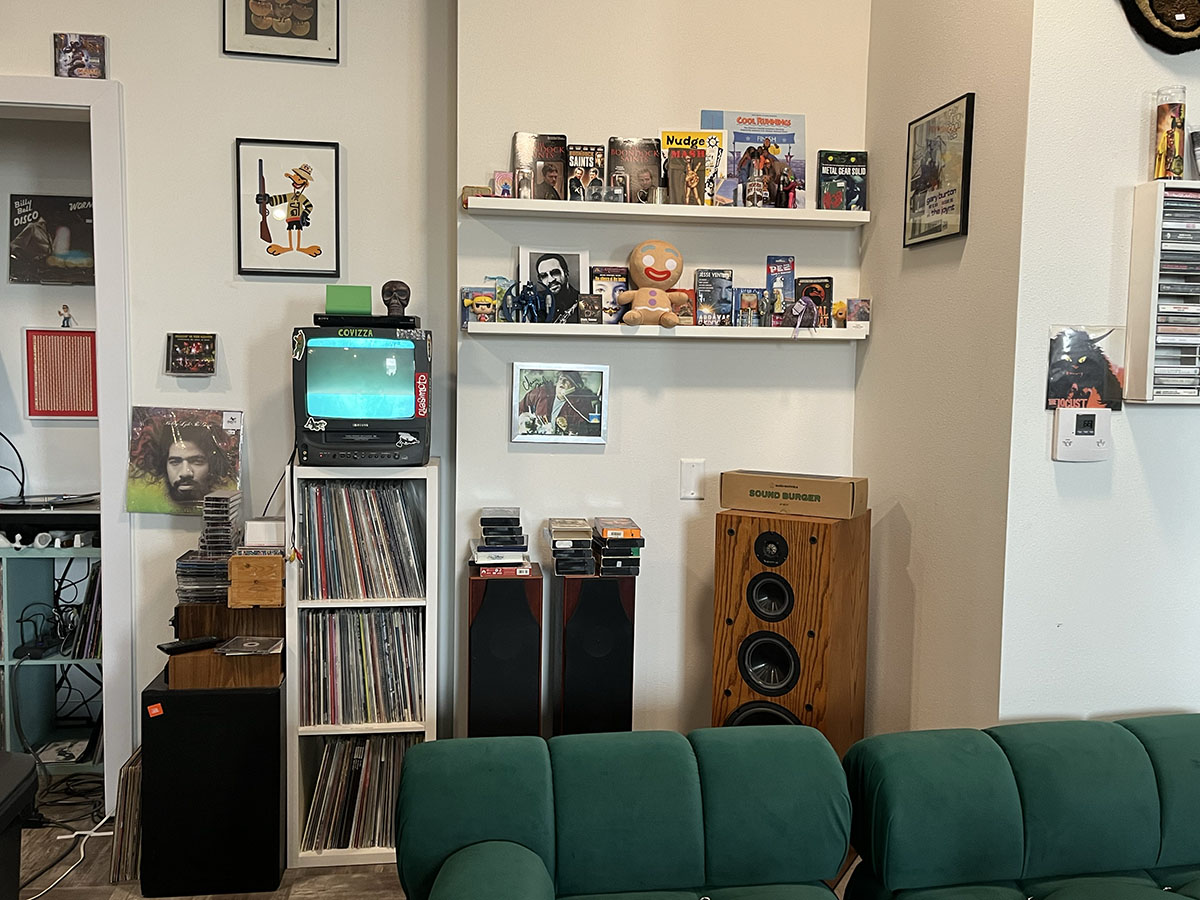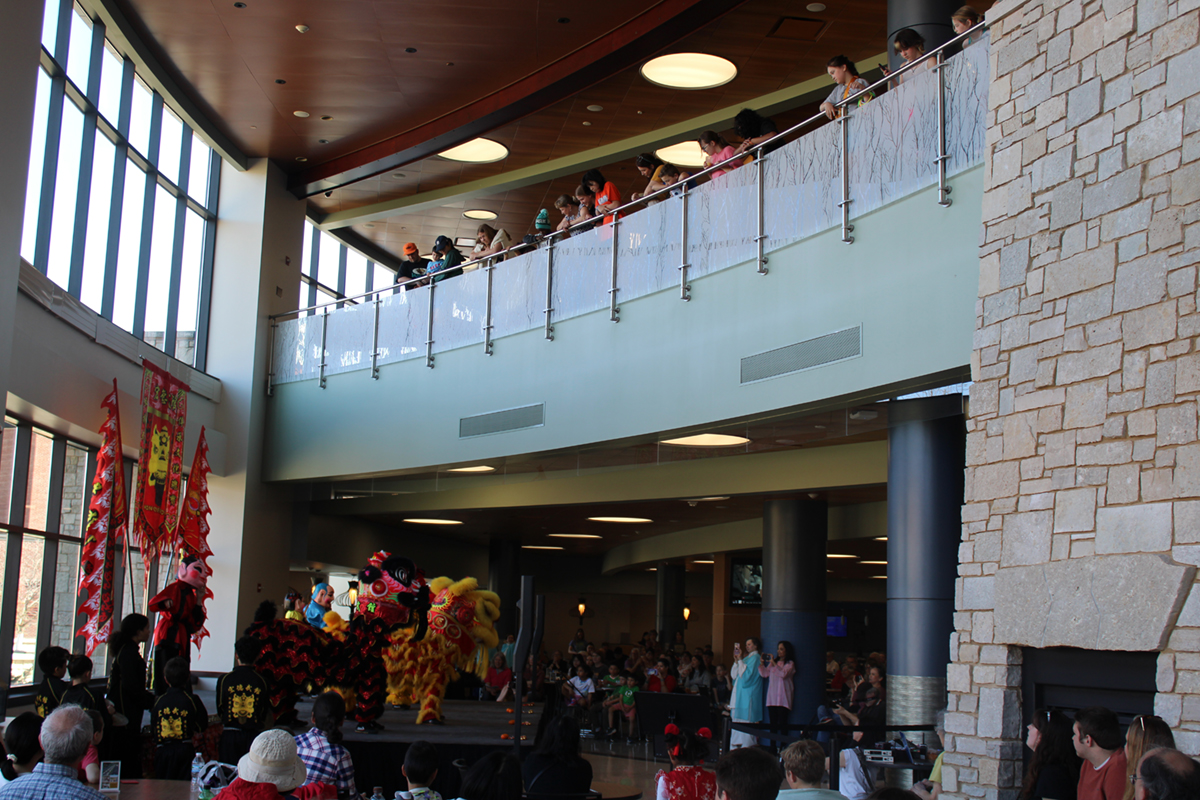Quick, make up a monologue about peanut butter.
For the growing number of improvisation performers in Eau Claire, this is just one example of a skit they might perform at a show. For many of us the only exposure we have to improvisation is from the show, “Whose Line Is It Anyway?”, but Eau Claire has its very own improv community that has been gaining popularity .
Amber Dernbach has been coaching improv at Memorial High School since 2003. Dernbach says improv is gaining popularity because it’s so accessible.
“It’s something the audience can be a part of and I think that makes it feel more intimate,” Dernbach said.
Improv performances at Memorial are held in a little theater that seats just under 200 people. Dernbach says people are lining up at the door before the show even starts and the theater is always filled. Ian Jacoby, an Eau Claire student and improv performer, grew up in Eau Claire and attended North High School, he says that students at North were jealous they didn’t have an improv group. Being in the improv group made you king of the school.
But does improv hold up past high school?
Yes.
UW-Eau Claire has its own improv group on campus called The Backwards Thinkers Society. It started as an extension of the UWEC Players but two years ago they broke off and began their own organization.
Julia Jaskulske, one of the vice presidents, says that there is a difference between improv and other entertainment performances.
“I think the big difference is the spontaneity of it and how important the audience participation is … the audience is part of the show and I think people like that about improv,” Jaskulske said.
BareBones and Shambles are two adult improv groups in Eau Claire. Both Dernbach and Jacoby are involved in the groups which perform at various venues.
Dernbach says one of the biggest questions she is asked is how people practice something that’s spontaneous.
“It’s the skills behind the scenes that makes somebody a good improviser on stage,” Dernbach said.
Skills such as listening and acceptance. Dernbach says it’s important to build trust and become comfortable with each other.
“That’s the biggest thing in improv is saying yes and not denying what’s offered to you and what’s suggested on stage,” Dernbach said.
Jacoby says that movement is as important as or maybe even more important than having a good idea. Two people standing on stage talking gets boring really fast. He says Dernbach is a master at movement and a lot of fun to watch.
“She’ll become a dog,” Jacoby said. “She’ll become an old woman or an astronaut. You’ll be like ‘Woah. That is how an astronaut would move his hips.”
For most us, getting on stage and doing improv is easier said than done. Jacoby has been a music improviser for only eight months and said it was easier than he thought.
“It’s hard to get over the fear aspect and think ‘what am I going to say next’, that part is very hard. The part that’s easy is once you just start trusting people and trusting yourself it really opens things up …” Jacoby said.
Being funny at a party is an accomplishment for most and it’s hard. For improv performers thinking too much can be a problem.
“Don’t try to be funny,” Jacoby said. “Be smart and tell the truth and people will laugh because they’ll see humor in truth.”
Dernbach is holding an improv festival at the end of November that will feature a number of local and touring improv performers. The festival will include workshops and performances.
Think you can do it? Start thinking about the last time you ate peanut butter.






